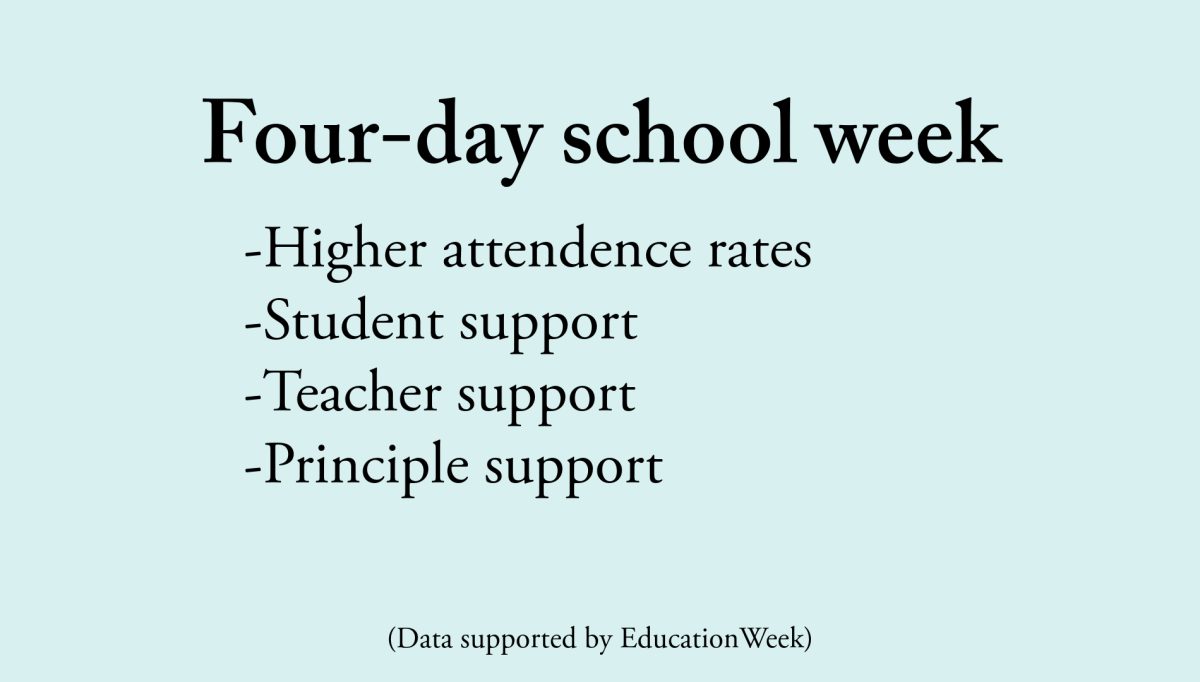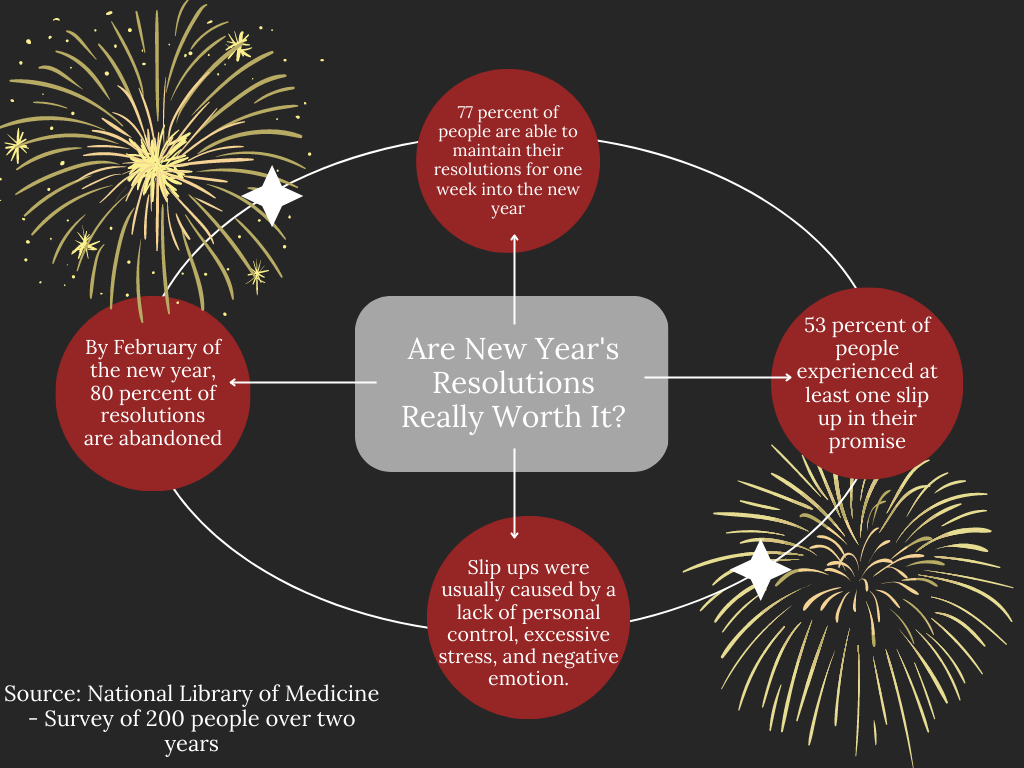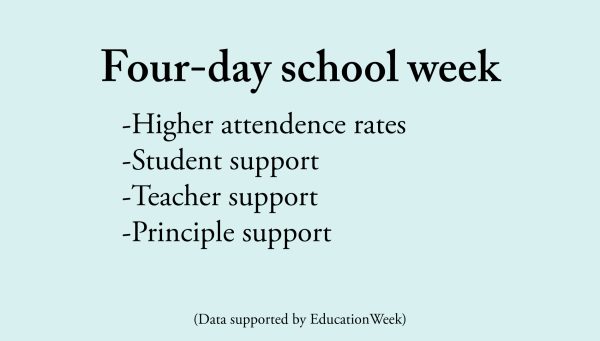New Years leaves piles of procrastinated promises
January 12, 2023
“This time it will be different; This time I’ll change for good!” The simple lies we tell ourselves as we look into the New Year and ponder the possibilities of a fresh start ring out once more. These promises, however, ultimately fall through as unrealistic expectations of a “brand-new you” are not fulfilled.
The idea of leaving the past behind and starting a new chapter in your life does sound quite pleasant, but often times this idea makes one feel obligated to set outlandish goals with little thought as to how those goals could be realistically achieved. By the time the New Year actually begins and one tries to fulfill their resolution, it seems too much of an ordeal to complete. Instead of breaking down one main goal into many smaller ones to create milestones that encourage the progress of completing your resolution, people tend to focus only on their end goal that takes more time to complete than expected.
Either people lack the motivation to start the journey to complete their resolution or they get too overwhelmed by the idea of their resolution that they fail to continue with their goal. According to the National Library of Medicine, as of February of the New Year, 80 percent of New Year’s resolutions will have been abandoned. For many, they fall back into the same old habits and promise to put off fixing them until tomorrow, or next week, or, most ceremoniously, the New Year.
From personal experience, it can be extremely challenging to adopt a new mindset and stray away from old habits when trying to complete one’s resolutions. Last year, I planned to eliminate all aspects of procrastination from my daily life; however, I never really went through and played out how I was going to do that, and ended up abandoning that resolution.
If you plan on establishing realistic motivational milestones to lead you to your goal, then having New Year’s resolutions would definitely be worth it. However, if you don’t intend to meticulously plan out how you want to approach your resolutions, they’re not really worth it in the long run— you’ll ultimately end up telling yourself, “maybe next year.”
























































































